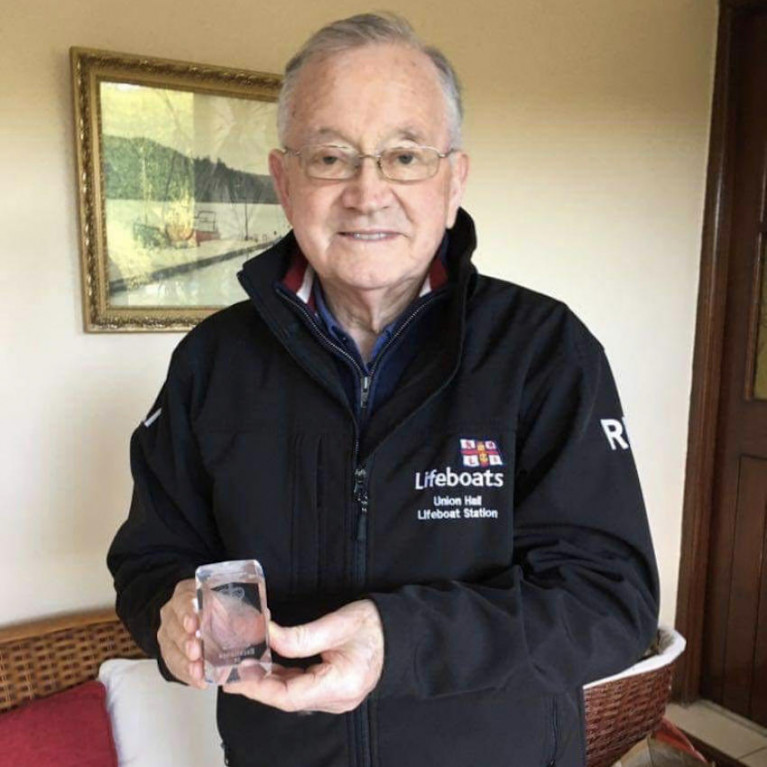Union Hall RNLI volunteer Brian Crowley has received an Excellence in Volunteering Award from the RNLI for his hard work, dedication to and promotion of the charity that saves lives at sea.
Unfortunately due to pandemic restrictions, the lifeboat station could not present him with his award in person but hopes to mark this achievement next year.
“This is such an achievement as Brian is volunteering with the RNLI for ‘only’ 66 years so far,” said Pamela Deasey, Union Hall RNLI’s press officer.
“He was asked then to join by Mrs Bridges in Glandore, and he said ‘Yes’ straight away. As a young man growing up in Union Hall, he was aware of the dangers of the sea, and he wanted to raise awareness and help raise vital funds for the service.”
Brian was well-known throughout West Cork at the time as he used to co-own the ever popular Crowley’s Hall in Union Hall, where many a West Cork couple met — his first undertaking as fundraiser was a dance which was a tremendous success.
He became secretary of Leap, Glandore and Union Hall branch in 1976 as well as filling in a lot of other roles, until the current branch set up in 1997.
“Words like dependable, trustworthy, selfless and courageous are the ethos of the RNLI and Brian has proved to be a great ambassador having these qualities in abundance,” Pamela added.
“This is not Brian’s first award, as he also received his silver badge for fundraising in 1985 and a gold badge in 2003. He has many a story to tell about all his years service and all the tremendous characters he has met along his way.”
Speaking following news of the award, Mick McKenna, chair of fundraising at Union Hall RNLI, said: “Everyone at Union Hall RNLI would like to firstly congratulate Brian for this much deserved award, and secondly thank him for all his time, efforts and dedication throughout all these years, in helping to raise vital funds for the RNLI. We are all extremely proud of his achievements.”































































